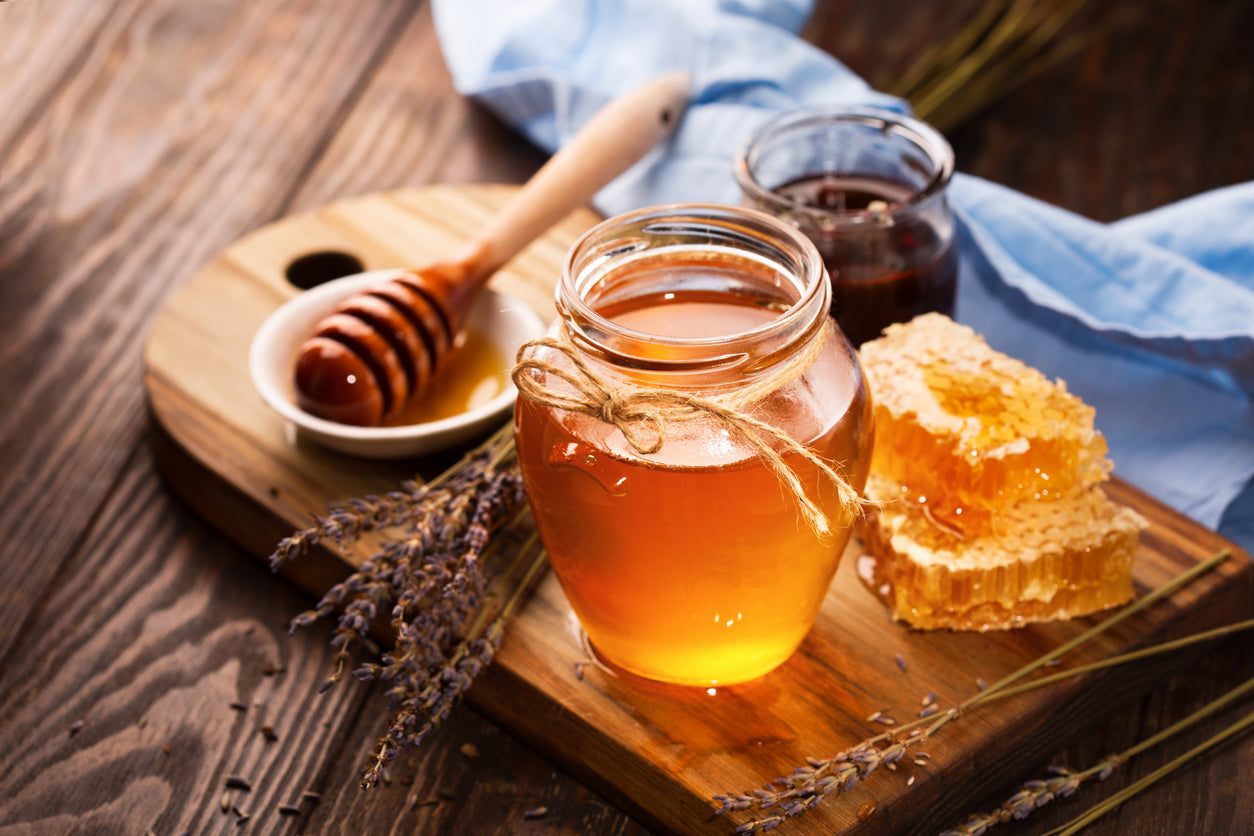The sweet benefits of honey include natural cough relief

Is there anything more miserable than coughing throughout the night? Or – even worse - hearing your child hacking away down the hall?
A nagging cough that accompanies an upper respiratory tract infection is more than just an annoyance. It can also interfere with much-needed sleep, and impair recovery for adults and children alike.
For relief, many people turn to commercial cough products, which contain drugs such as dextromethorphan. However, side effects can include blurred vision, nausea, nervousness and even insomnia - a particularly undesirable effect for a medication taken to relieve cough and promote sleep.
Looking for solutions? Discover how to safely tame a racking nighttime cough?
The answer just might lie in your kitchen cabinet - in a jar of honey.
Natural healers have long relied on honey for its ability to reduce both mucous secretion and coughs. In fact, honey is classified as a demulcent - meaning it has protective, anti-inflammatory and soothing effects on mucous membranes.
Now, researchers are giving honey the “thumbs-up” for natural cough relief.
Honey outperforms pharmaceutical drugs in easing coughs of children with URIs
In a study involving 105 children published in Archives of Pediatric and Adolescent Medicine, researchers compared the cough-relieving effects of a single dose of buckwheat honey to that of honey-flavored dextromethorphan.
The team relied on the ultimate experts - the children’s parents – to evaluate the results.
The parents reported that honey improved the frequency, severity and bothersome nature of the coughs, as well as the sleep quality of parent and child. To top it off, the parents rated honey more favorably than dextromethorphan.
And, a separate study published in Journal of Alternative and Complementary Medicine showed that 2.5 ml (about a half teaspoon) of honey outperformed both dextromethorphan and diphenhydramine - another common cough preparation ingredient - when it came to relieving cough and improving sleep.
Just remember, don't give honey to children less than 12 months old. Although honey is safe for children over the age of one year, it could contain botulism spores that are dangerous to infants.
Surprise! Honey can help to support heart health
Among honey’s unexpected gifts is its ability to promote heart health by combating six different risk factors for heart disease. Studies support the ability of antioxidants in honey to decrease LDL, lower triglycerides (fats) in the blood, raise HDL, support modest decreases in blood pressure and act against obesity.
While it seems counter-intuitive that high-carb, high-sugar honey can improve cholesterol and combat weight gain, this is exactly what it appears to do. In fact, one study showed that honey caused a 5.8 percent reduction in LDL cholesterol, a 3.3 increase in HDL cholesterol, and a modest weight loss. Not too shabby for such a delicious indulgence!
In addition, honey’s polyphenols and flavonoids can help to dilate arteries, increase blood flow to the heart, and act against clotting that triggers heart attacks and strokes.
Read CAREFULLY: Honey is a treasure trove of beneficial compounds
One tablespoon of honey contains 64 calories (about the same amount as a small apple), along with a hefty 17 grams of sugars, including fructose, glucose, maltose and sucrose.
Keep in mind, these natural sugars have a much lower glycemic index than refined white sugar - and won’t contribute to insulin resistance. Because honey is easily absorbed and converted to energy, some experts even recommend it as an ideal pre-workout food.
While honey contains only small amounts of vitamins and minerals, it more than makes up for it with its storehouse of valuable polyphenols. Research has shown that honey is rich in beneficial antioxidant flavonoids - such as pinocembrin, pinostrobin and chrysin - that help prevent the oxidative damage that can trigger heart disease and cancer.
And, let's not forget: honey is a prebiotic food, meaning it provides fuel for beneficial bacteria in the intestinal tract. And, it increases the release of melatonin, a hormone that promotes restful sleep and boosts the immune system.
For maximum antioxidant benefit, natural health experts advise selecting raw, unfiltered, unpasteurized organic honey. When shopping: look for high-quality brands that appear cloudy rather than sparkling clear, with darker honeys having higher antioxidant value. As you probably know, Manuka honey is considered the “gold standard” of therapeutic honeys.
You can add honey to your diet in a variety of tasty ways. Drizzle it over fruit or yogurt, add it to smoothies or use it in marinades and dressings. However, experts point out that moderation should prevail - and that the best use of honey is as a replacement for white sugar in the diet.
For coughs, natural healers recommend one to two teaspoons of antioxidant-rich honey, either taken “straight” or dissolved in lukewarm water with lemon. But, however you choose to take it, honey is an effective cough suppressant that “goes down easy.”
Sources for this article include:






